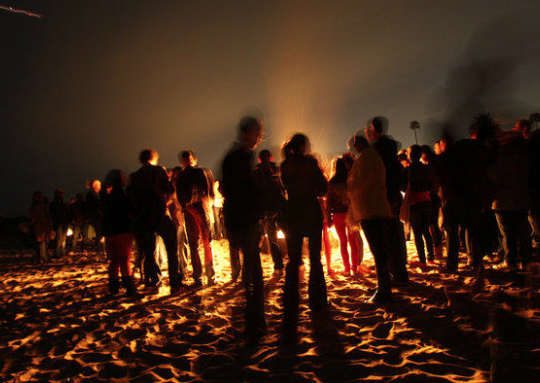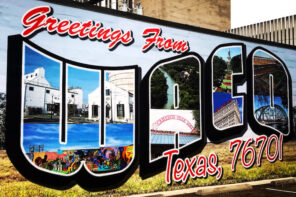“Religion should not be confined to religions which recognise a supreme deity…”
So said Britain’s Lord Toulson, Justice of the Supreme Court of the United Kingdom, this week. Toulson was speaking to a legal redefinition of the Church of Scientology as a religious entity in the UK, but the statement bears some significance for Americans as well.
Curiously, the news went through the wires and was picked up by Time, among others, as an issue of a “tax break” for Scientology. Perhaps that’s an indication of the way US news hears (or mishears) reports. But the heart of the Supreme Court decision revolved around marriage, and whether or not a young woman could be legally wed in a Church of Scientology in England. The plaintiff, Louisa Hodkin, is a lifelong Scientologist, but the UK’s Registrar General of Births, Marriages and Deaths did not allow her to marry in the Church since they did not consider it a religious space.
This week’s Supreme Court ruling overturned that, with a slap on the wrist to the Registrar’s office.
What this means more broadly is that the tired old Protestant-inflected definitions of “religion” are losing hold in diverse Western nations. And it’s about time. Religion can no longer be seen as a “set of beliefs in God,” as conventional wisdom might put it. A global, plural view of religion must rid itself of emphasis on both “belief” and “God.” Instead, we need to look toward those definitions, culled from decades of in depth observations of cultures and societies around the world that point toward the networked systems of myths, symbols, rituals, and concepts that orient communities of people toward meaningful and valued living. Religion refers to behaviors and practices as much as, and often more than, belief. (I’ve offered another definition here.)
This also means that silly assertions that atheists are anti-religious are misguided as well. As many have stated (and it needs constant restating) the conception of a world without a god does not preclude religion. Apples don’t grow on orange trees. There are plenty of religious atheists in the world.
One of the chief concerns here is that Scientology is often considered a “cult,” a term that has no legal status but is pejoratively applied to groups that other people don’t much like. The fact is, pretty much all “religions” were once “cults.” Christianity, before it was a global tradition, was a cult; a group of people meeting in the catacombs under Rome and “eating a body” and “drinking the blood” of their charismatic leader is, by most any definition, a cult. Buddhism was also once a cult. And Islam as well.
Unfortunately, Lord Toulson went on to give his own unofficial definition of religion: “I would describe religion in summary as a spiritual or non-secular belief system, held by a group of adherents, which claims to explain mankind’s place in the universe and relationship with the infinite.” His philosophical orientation misses much, and reveals that there is a long way to go for rethinking religion on pluralistic grounds.
Toulson is still assuming that religion is a disembodied “belief system,” a set of ideas, however fervently adhered to, that people carry around with them in their heads, on their way to work, driving in their cars, shopping for Christmas presents. It’s a private thing, and I can be religious by myself, or so says this view—which is a late Protestant notion operating within a spirit of capitalism. And it’s a view that is in need of revamping.
Some, like Paul Vallely, writing in the UK’s Independent, see the recent decision as a slippery slope since the Court has “loosened” the definition of religion. But it’s a reality that the definition must take into account a wide swath of practices, behaviors, and beliefs in lands that are no longer so predominately Protestant.
Religion is nothing if not practiced, nothing if not communally created by and for people who find meaning, yes, but also find ways to put our bodies into relation with other bodies. Religions are sensually established and engaged through sights and smells and sounds, as human bodies sway and sing, pray and play. Rituals are carried out, ancient stories are told anew, the candles are burned, and the flowers garlanded.
Religion is embodied practice, done with others, extending far beyond “belief in god.”





